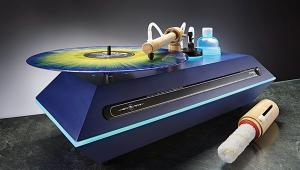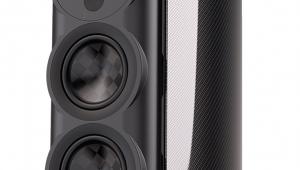Buzzcocks: Another Music In A Different Kitchen Page 2
By the time the Buzzcocks recorded their debut album Another Music In A Different Kitchen, their signature sound was fully formed. Shelley and Diggle's overdriven guitars played off each other – 'double power' as Shelley described it – and were joined by Steve Garvey's roaming bass and 17-year-old John Maher's hyperactive drumming.
![]()
High-Speed Hollies
Shelley, with a little help from Diggle, had a knack of writing timeless pop melodies that put them in a league above their punk peers. Writing in the New Musical Express, Paul Morley rather mischievously assessed Buzzcocks as being 'closer to Herman's Hermits than The Velvet Underground'. Closer to a high-speed Hollies might have been nearer the mark.
![]()
Another Music In A Different Kitchen opens with a cheeky extract of 'Boredom' followed by the short and punchy 'Fast Cars' – a kind of antithesis of The Beach Boys' 'I Get Around'. The song was written by Shelley, Diggle and Devoto about a car accident that Diggle was involved in.
Later, on 'Sixteen', Shelley sings: 'And I hate modern music/ Disco boogie and pop/ They go on and on and on and on and on/ How I wish they would stop' – and the song stops dead. Here, the band's deconstruction of rock, and the re-assembling of its parts into something new, was reminiscent of punk band Wire on their 1977 debut Pink Flag. 'Sixteen', meanwhile, features buzzsaw guitars in waltz-time with a free-form section. In a further example of musical drollery, on 'You Tear Me Up' the four musicians start the song at full tilt, gradually slow down and then speed up again.
![]()
New Yodel Army
Bassist Steve Garvey has cited The Ramones as more of an influence on Buzzcocks than The Sex Pistols, while the band's headlong rush was also inspired by Shelley's love of German group Neu!, whose propulsive guitars could evoke a sense of travelling at high speed towards the horizon. On 'Get On Our Own' Diggle and Shelley's guitars spur on the latter's hysterical mating call, which at times comes close to yodelling. In fact, Shelley would later admit to being a fan of Frank Ifield.
![]()
Shelley sang what he called 'bisexual love songs', in that they weren't gender specific, and anyone could relate to his tales of star-crossed lovers and jilted, anguished characters. On their third single, the irresistible 'I Don't Mind', he plays a paranoid obsessive lover with 'I think you've got it in for me/ Or is it all in my head?'. But on 'Fiction Romance' he flips all this around, revealing that his love life is way more exciting than anything that he's read in a book.
![]()
Finger On The Pulse
Even into 1978, all eyes were on punk groups to see what they would do on their debut album. Buzzcocks signed off with the adventurous, lengthy 'Moving Away From The Pulsebeat'. It's based on John Maher's smartly played syncopated tom-tom pattern, each verse followed by a melodic guitar hook, all of which seems to be nodding back to Can's 'Yoo Doo Right'. The song and album are rounded off by another snippet of 'Boredom' before it disintegrates into electronic bleeping. Another Music In A Different Kitchen peaked at No 15 in the UK charts.
Back in the early '60s no-one knew how long The Beatles would last. Ringo was even thinking of opening a chain of ladies' hair salons to guarantee an income. Similarly, Buzzcocks had no real idea what would happen beyond their debut, but they are still extant even after Shelley's death in 2018, and their influence has been enormous. American punks Green Day spring immediately to mind, but add to them almost any band who have been drawn to the combination of a pop melody and fast guitars.

















































